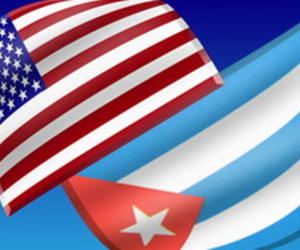US welcomes Cuba decision to end foreign travel permits
- Submitted by: lena campos
- Politics and Government
- 10 / 18 / 2012

The United States has welcomed the decision by the Cuban government to abolish the requirement for exit permits.
The US state department said the move was consistent with the universal right to leave or enter any country.
Under the reform, highly-qualified professionals such as doctors will still continue to face travel controls.
Cuban exile groups in the US said the move by Havana was insufficient and "plagued with restrictions".
Cuban state media said the reform would come into effect on 14 January.
Cubans currently have to go through a lengthy and expensive process to obtain a permit and dissidents are often denied one.
Those who have permanent residency on the island will also be allowed to stay abroad for up to 24 months, instead of the current 11, without having to return to renew paperwork.
"This is consistent with the Universal Declaration of Human Rights, which provides that everybody ought to have the right to leave any country," US state department spokeswoman Victoria Nuland said.
"So we are analysing, obviously, all of the details and any implications it may have for our processing [of Cubans]."
"Human capital"
The BBC's Sarah Rainsford in Havana says the exit permit process is hated by most Cubans so this reform, which was much anticipated, will be widely welcomed.
Cuba previously saw people attempting to leave the country as traitors or enemies of the revolution, says our correspondent, but official recognition is growing that many Cubans want to leave for economic reasons and that the country can benefit from the cash and knowledge they bring back with them.
Now all that many Cubans will need to leave is a valid passport and a visa.
However, the new law still argues for the need to protect Cuba's "human capital", our correspondent adds, so highly-qualified professionals such as scientists and military personnel will continue to face extra hurdles to travel.
Government critics are also likely to experience further difficulties, as passport updates can be denied for "reasons of public interest defined by the authorities".
Cuban exile groups in the US say the reform does not go far enough.
Ramon Saul Sanchez, president of Movimiento Democracia (Democracy Movement) which is based in Miami, said the attempt to normalise Cuban migration was "insufficient, and is plagued with limitations and violations of human rights".
Ileana Ros-Lehtinen, a Cuban-born representative in the US Congress, said the measure was "nothing more than Mr Castro's desperate attempts to fool the world into thinking that Cuba is changing".
Hundreds of thousands of Cubans emigrate illegally in the past few decades, many of them to the US where they have formed a strongly anti-Havana diaspora.
The US grants automatic residency to anyone who reaches it from Cuba
Source: BBC.co.uk
Comments